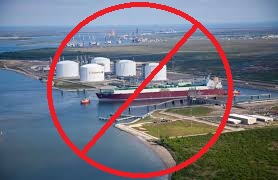As Urban Gas Drilling Expands, So Do Health Concerns
June 12, 2010Onshore Drilling Disasters Waiting to Happen: An Interview With 'Gasland' Director Josh Fox
June 19, 2010Pennsylvanians are only slowly becoming aware that we are under siege. More than a thousand Marcellus Shale drill sites are in the works, with tens of thousands more poised to descend on Penn’s Woods, its towns and neighborhoods, threatening to poison water tables, suck streams dry, pollute the air with ear-splitting noise and toxic fumes — all without meaningful regulation, without meaningful taxation.Like coal, which successfully resisted a severance tax, leaving taxpayers and volunteer associations to wrestle with the social and environmental damage wrought by more than a century of exploitation, gas drillers enabled by politicians expect Pennsylvania to remain the only major gas-producing state without a severance tax. These deep-drilled deposits of natural gas will be severed from the commonwealth forever without compensation and with little or no enforceable liability for the devastation wrought on the land, water and air. We cannot allow this to happen!
Without labor protections, community protections, landowner protections and public health protections, we cannot allow this toxic invasion to proceed.
Federal exemptions under the Clean Water Act for deep gas drilling need to be reversed by the Obama administration, but we can’t wait for federal action. Pennsylvania has a tool it can use. We need rigorous enforcement of the Pennsylvania Worker and Community Right-to-Know Act of 1984 passed in the wake of the Bhopal tragedy in India, which:
• Mandates that Material Safety Data Sheets on all chemicals used in industry be made readily available to all workers on any site where dangerous chemicals are present. This should apply to every drill site without exception. Deep drilling is a dangerous and generally nonunionized industry of transient workers who have few rights or protections.
• Gives the community the right to know the types and amounts of chemicals that are being emitted into the air or discharged into the waters. Shale gas is extracted by injecting huge amounts of water, sand and chemicals to fracture rock deep underground. How can water-treatment facilities possibly begin to deal with cleaning our drinking and bathing water of the infusion of extremely salty fracking liquid laced with highly toxic chemical agents if, under the guise of proprietary rights, companies will not reveal their names and known characteristics? Many believe fracking fluids disposed in old coal mines broke out into Dunkard Creek last fall’s devastating stream life and then entering the Monongahela River, tainting water supplies. According to fishermen, there are noticeable declines this year in local fish populations in watersheds that have just begun to recover from industrial pollution, acid mine drainage and sewage overflows.
• Requires emergency re-sponse personnel to be provided information on the identity, quantities and placement of toxic chemicals and requires that an emergency plan be coordinated with local community fire and emergency response organizations. The volunteer firefighters dealing with a gas well fire in Clearfield County would have been well served if our laws had been enforced.
As recent gas well explosions in Texas, Clearfield County and Moundsville, W.Va., illustrate, the soothing platitudinous reassurances of slick public relations men and the politicians who have stuffed their campaign chests full of gas money are to be accorded the same weight and credibility as those relentlessly green energy ads foisted on us by British Petroleum for the past several years. With the horrific oil spill in the Gulf of Mexico by green-washed BP revealing lies, criminal negligence, self-delusion, disregard for worker safety, obstruction of justice, total indifference to environmental health … for the sake of our children and grandchildren, we can do better, we must do better.
Without adequate regulation, without serious taxation that strengthens environmental enforcement and helps support vital public services like education and public transportation in a time of economic crisis, without clear uncapped liability rules that assign and enforce responsibility for irresponsible actions, without preservation of property rights by blocking the indirect destruction of the value of people’s homes and lands, without significant public money to repair the roads and bridges that will be damaged by the invasion of heavy equipment bearing down on us, without protections for fish and wildlife, we must stop the drilling.
Substantial levels of taxation could provide tax credits as incentives for companies to hire Pennsylvanians employed at drill sites, on transmission lines and in compressor stations. Most employment at present is from out of state. We must draw a line in the sand here and now in Pennsylvania!
The U.S. Constitution defines the purpose of government: to provide for the common defense and promote the general welfare. Government on all levels is failing its purpose.
Our commonwealth lies defenseless, naked, open to despoliation and degradation without even the meager benefits of prostitution that provides at least some payment for services rendered. We need an immediate and complete moratorium on drilling until we can intelligently adopt adequate regulations and guarantee substantial tax revenues for environmental and labor law enforcement as well as other critical state needs in a time of economic crisis.
Dr. Charles McCollester is a recently retired professor of Industrial and Labor Relations and director of the Pennsylvania Center for the Study of Labor Relations at Indiana University of Pennsylvania (cmccollester@verizon.net).



